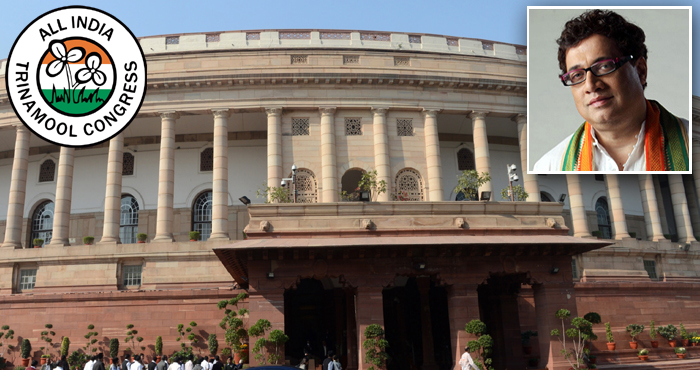Sir, this is a serious issue. Indian Railways is more on time than Air India. This Railway Committee actually has only one agenda for the entire year, which is to announce a dividend.
Suresh Prabhu ji is very enthusiastic and very earnest in his efforts, especially in the way he coordinates with all the States. We appreciate that. This discussion may be for 20-25 minutes but it is worth Rs 12000 crore.
Sir, based on the recommendations of this Committee, in the 1920s, I think it was 1924, the finances of the Indian Railways was separated from the Union Budget. The Indian Railways became a public sector undertaking in 1924. Now Sir, the commitment of the Indian Railways has changed. It is not only about profit, it is also about social responsibility.
In 1964, on the recommendations of this committee, Rs 100 crore was given to the Indian Railways, after which the Railways used it for its projects. For the last few years, the dividend has gone down from seven per cent to six per cent, five per cent, so much so now that this year the Committee has recommended that the dividend will come down from five per cent to four per cent. This means Suresh Prabhu ji will have Rs 6000 crore each in the left and right pockets.
Sir, my question is, why do we need to give even one per cent dividend from the Railways to the central government. Let that money remain in the Railways; that can be used in other social sector projects. You can use it in Kashmir or other places which are connected.
The Railway Standing Committee has made a serious recommendation this year; my colleague was the Chairman of the Committee. The Committee made a recommendation of scaling down the dividend to zero per cent. We understand that if suddenly from Rs 12000 crore we give Prabhu ji zero, he will be a very disappointed person. However, Sir, I believe, as a House, as Parliamentarians, we should take this issue up and reduce the dividend from four per cent to two per cent and then off it goes.
Railways cannot have this extra money. I will tell you why. Because once this money goes to the Railways, with no offence meant to Suresh Prabhu ji, then the priorities change. Let me give you an example – to build a bullet train. Now, we all want bullet trains. Bullet train is very good. But the cost to build a bullet train, even if Japan gives you money, will be Rs 90000 crore. What will the bullet train do? It will connect Mumbai to Ahmedabad.
Sir, you can put that money – at least Rs 40-50 thousand crore – to the national highways; you could have better roads. You can put it into other programmes. Sir, you can increase railway safety. I don’t have any problem with having a bullet train but I think if you use your money like this, Suresh Prabhu ji, it will be a misfired bullet.
Today if you look at the Railways – Suresh Prabhu ji has inherited some of it and it is not entirely his fault – there is over a cost overrun of Rs 1 lakh crore on the Railways. If you look at the smaller projects it is about Rs 7000 crore.
In the morning today, we asked the government why do you want cess. Similarly, I would like the Railway Minister and all the parties – in Opposition or the government – to reconsider this old colonial system of giving railway money, sucking railway money out because one Mr Acworth thought about it in the 1920s.
Sir, the allocation for Sarva Siksha Abhiyan for 2016-17 is Rs 22000 crore; the total allocation for construction of roads and highways is Rs 55000 crore. Sir, I want to leave behind this thought. Sir, since the concept of the Indian Railway has changed from colonial times and today there is social responsibility as well as a commercial viability, the only way to stop doing this is not to give the dividend to the Finance Minister.
What is basically happening is Suresh Prabhu ji is giving Hon’ble Arun Jaitley ji Rs 12000 crore. This is the bottom line of what we are discussing today. Let it be for this year, Sir. But next year we should look at the Standing Committee recommendation, look at the discussions of Railway Convention.
I think this is beyond a political issue and I think the Indian Railway, as I speak for them, must keep all the money. No more debate. This year jo mil gaya, woh ho gaya.
Thank you, Sir.

